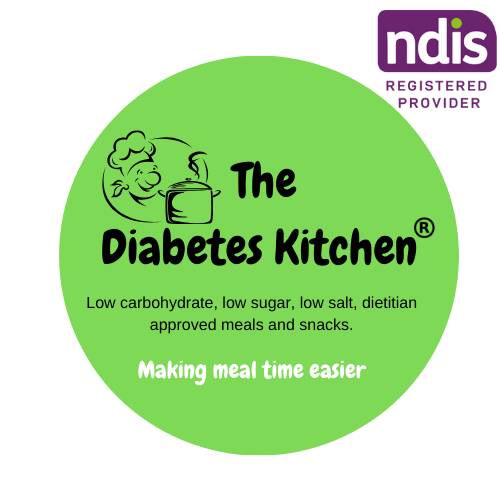Can I Still Eat Sugar? Understanding Diabetes and Sugar Consumption
One of the most common questions people with diabetes ask is: “Can I still eat sugar?” The short answer is yes—but with some important considerations. Having diabetes doesn’t mean you need to completely eliminate sugar from your diet, but it does mean you need to be mindful of how it affects your blood sugar levels and overall health. In this article, we’ll explore the relationship between diabetes and sugar, debunk myths, and offer strategies for enjoying sweet treats without compromising your health.
Diabetes is a condition that affects how the body processes glucose, a form of sugar that serves as its primary energy source. When you eat carbohydrates, including sugars, your body breaks them down into glucose, which enters the bloodstream. In people without diabetes, insulin helps transport this glucose into the cells for energy. However, in individuals with diabetes, insulin production or function is impaired, leading to elevated blood sugar levels.
Many people assume that diabetes is simply caused by eating too much sugar, but this is a misconception. Type 1 diabetes is an autoimmune condition that occurs when the body's immune system mistakenly attacks insulin-producing cells. Type 2 diabetes, while influenced by lifestyle factors, is largely driven by insulin resistance rather than sugar consumption alone. Excessive sugar intake can contribute to weight gain, which may increase the risk of Type 2 diabetes, but sugar itself is not the sole cause of the disease.
Can Diabetics Have Sugar?
Yes, but moderation is key. While it’s essential to monitor sugar intake, total avoidance isn’t necessary. The key to managing diabetes while enjoying sugar is understanding how it fits into your overall dietary plan. Here are some factors to consider:
-
Portion Control – The amount of sugar consumed has a direct impact on blood glucose levels. Small amounts of sugar can be incorporated into a balanced diet without causing significant spikes.
-
Type of Sugar – Natural sugars found in fruits, vegetables, and dairy products come packaged with fiber, vitamins, and minerals. These are generally preferable to refined sugars, which lack nutritional value.
-
Glycemic Impact – Some forms of sugar raise blood glucose more quickly than others. Foods with a lower glycemic index, such as whole fruits, are better choices than high-GI foods like sugary drinks and processed sweets.
Strategies for Managing Sugar Intake
While you don’t need to completely eliminate sugar, having a structured approach to consumption can help maintain stable blood sugar levels. Here are some practical strategies:
-
Choose Complex Carbohydrates – Whole grains, legumes, and fiber-rich vegetables help slow down sugar absorption, preventing sudden blood sugar spikes.
-
Pair Sugar with Protein or Healthy Fats – Combining sugar with protein or healthy fats slows digestion and helps stabilize blood sugar.
-
Opt for Natural Sweeteners – Instead of refined sugar, try alternatives like stevia, monk fruit, or erythritol, which have a lower impact on blood glucose.
-
Read Food Labels – Many processed foods contain hidden sugars under different names (e.g., fructose, corn syrup, dextrose). Checking labels helps you make informed choices.
-
Practice Mindful Eating – Savor sweet foods slowly and intentionally, rather than consuming them out of habit or emotional triggers.
Common Myths About Sugar and Diabetes
Myth 1: People with Diabetes Must Completely Avoid Sugar
While limiting sugar is beneficial, total elimination isn’t necessary. Moderation and thoughtful planning allow diabetics to enjoy occasional sweet treats.
Myth 2: Natural Sugar Is Completely Safe for Diabetics
Even natural sugars, like those in fruit, can cause blood sugar spikes if eaten in excess. Whole fruits are better than fruit juices since they contain fiber, which helps slow sugar absorption.
Myth 3: Artificial Sweeteners Are Always a Healthier Choice
While some artificial sweeteners are useful for blood sugar management, others may have negative health effects. It’s best to choose natural alternatives or use artificial sweeteners in moderation.
Myth 4: Sugar-Free Foods Are Safe for Diabetics
Many sugar-free products still contain carbohydrates that affect blood glucose levels. Always check the nutritional information and ingredient list.
Finding Balance in a Healthy Diet
Living with diabetes doesn’t mean saying goodbye to sugar forever—it means making smarter choices. Understanding how sugar impacts blood glucose levels and applying mindful eating strategies allows diabetics to enjoy their favorite foods while maintaining overall health.
Instead of focusing on complete restriction, aim for balance. A well-rounded diet filled with nutrient-rich foods, coupled with controlled portions of sugar, helps diabetics manage their condition effectively. Working with a healthcare provider or dietitian can further assist in creating a personalized nutrition plan that includes occasional sweet treats without disrupting blood sugar levels.
Conclusion
The answer to “Can I still eat sugar?” is a resounding yes—with mindful moderation and strategic planning. Diabetes management is about balance, not deprivation. By understanding how sugar fits into your diet, making informed choices, and practicing portion control, diabetics can continue to enjoy sweet flavors while keeping their health in check.





